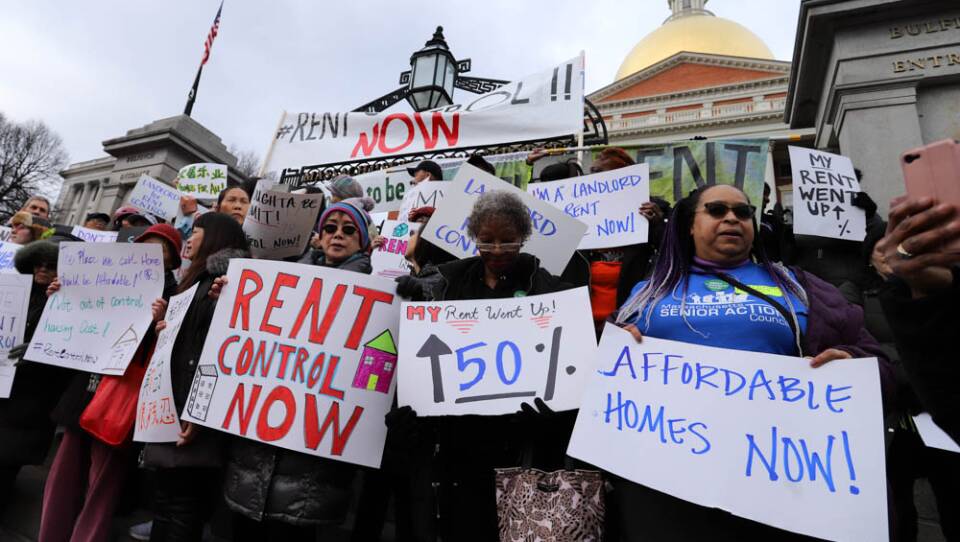Mayor Michelle Wu took a significant step on Thursday toward her top campaign promise of restoring rent control in Boston with the creation of a 23-member task force that will devise a plan to put before the Legislature for approval next year. The mayor billed the effort as a "rent stablization" initiative, but said she uses that term interchangably with rent control.
"We are looking to very thoughtfully craft a policy that can match the efforts already ongoing at the State House to give cities more flexibility and authority to help our residents," Wu said Thursday.
It will take a new state law by the Democrats, who control the House and Senate, for willing cities like Boston to legally put rent control rules in place.
Wu's Rent Stabilization Committee includes rent-paying tenants, housing developers, advocates and other experts. Their task will be to study the housing market in Boston, learn the needs of Bostonians struggling with housing costs and come up with a plan that can sway Beacon Hill leaders to allow the city to pursue a new kind of rent control program. The group will meet monthly in preparation for the start of the next legislative session in Jan. 2023.
Wu said the panel will have a free hand to develop their own plan and that rent control in the 2020s will likely look a lot different from the style of rent caps Massachusetts voters did away with almost 30 years ago.
"It could mean either setting specific rents or capping the amount that people pay. It could mean putting parameters around how quickly rents can go up, and that's the model that we see in many of the cities that are instituting this around the country right now," Wu said.
Throughout her Thursday morning press conference, Wu hammered home her belief that the affordability crisis in Boston has reached a breaking point for renters. More than half of Boston renters spend over 30% of their monthly income on rent, Wu said, adding that 65% of the city's residents rent their homes.
Sen. Lydia Edwards of East Boston backs Wu's plan to restore rent control and could prove to be a key ally in getting the plan through the Legislature. Edwards said at the press conference a rental stabilization program is necessary to building an inclusive city.
"It's not up for debate that the rents are out of control. It's not up for debate that we have created this problem and only we can fix this problem," Edwards said.
Wu has also committed to addressing housing costs by pursuing a new fee on real estate transfers to help fund affordable housing and an expanded property tax exemption for seniors. Both proposals require state approval from a Legislature that's been unwilling so far to give Boston's mayors what they're looking for.








